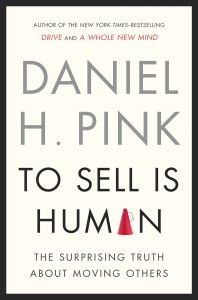Key point: Turn your engineering and technical staff into a hugely valuable selling asset by making selling acceptable, accessible, and appealing.
Companies that sell high-tech systems, or professional services such as engineering and consulting services, will often have more non-sales people interacting on a daily basis with their customers than their own formal sales force. These non-sales staff are often physically located in the client’s location and work closely with users and influencers every single day; when they do their jobs right, they develop strong relationships, deep credibility, and intimate knowledge of their clients’ operations, viagra culture, problems and opportunities, often in advance of anyone else knowing these things. In fact, some companies even dispense with salespeople and rely entirely on their engineers to serve clients and generate additional revenue.
Relationships, credibility and knowledge are priceless assets that any salesperson would kill to have, because they are the foundation of stellar sales success. Time after time in training sessions where the client includes technical staff as part of the sales team for the class, I’ve seen non-sales staff come up with some of the best insights and suggestions to advance the sales strategy or opportunity.
In addition, engineers and other technical staff can be your advance scouts into potential opportunities. The Corporate Executive Board tells us that buyers are about 60% of the way through their buying process before they contact potential suppliers.[1] In other words, most sales opportunities form long before they are visible to the outside world. They form within daily processes and operations, when things don’t work as well as they should, when things change and companies need to adapt and respond.
Yet these assets often go untapped and quite frankly, wasted, because the people who have them don’t use them to advance the revenue goals of their employers.
Why aren’t they doing it now? Engineers either:
- Don’t want to do it because they see it as distasteful. Make selling acceptable.
- Don’t want to do it because they see it as difficult or specialized. Make selling accessible.
- Don’t see the need to do it. Make selling appealing.
I will address each of these issues in a separate article. Here, we will discuss how to reframe selling so that it is acceptable to engineers.
Make it acceptable
The first hurdle to get over is the negative perception of selling that the typical engineer has. If you asked them the following question directly, which do you think they might check?
What is selling?
- A sleazy activity that tricks people to buy things they don’t want or need, or:
- Two parties agreeing to exchange resources in order to leave each party better off.
Nothing you do will have much effect until you can reframe their view of selling to something approaching the second option. [2]You have to show them that selling is a perfectly acceptable and even admirable activity. Very few people will wholeheartedly pursue an activity that contradicts the way they see themselves, regardless of how many carrots or sticks you use.
Here’s how engineers see themselves:
- Engineers solve problems.
- Engineers make the world a better place.
- Engineers are objective, honest and direct.
- Engineers are smart.
How does the ideal view of selling jibe with this self-image?
Engineers solve problems. Solution and consultative selling are both about solving problems for customers. Solution selling solves known problems, and consultative uncovers and addresses hidden problems. Learn how customers do things, find ways to improve them, and make the suggestion—that’s real selling!
Engineers make the world a better place. Selling is about making the world a better place. When two parties agree to exchange resources, it is because each intends to benefit from the transaction. While this is no guarantee that things will work, it’s an honest effort to make things better. As long as the discussion and the transaction are conducted honestly and with good intentions, both sides win, the relationship is strengthened, and the world is a better place. Plus, for those who would rather work on important problems and not trivial ones, trying to sell the solution is the most brutally clear way of finding out its true value.
Engineers are objective, honest, and direct. So are the salespeople who are most successful in the long run. They know that the only way to develop long-term, trust-based relationships is to deliver on their promises, and they can only do this when their promises are based in reality. When they can’t do something, they will tell the client. They may lose business by telling the client that there is a better alternative for them, but then this is business that they probably should not pursue anyway, and they will get other chances. Salespeople who are not afraid to (tactfully) challenge their customers’ view of the world will earn their respect and their attention.
Engineers are smart. This is definitely true for most of the ones I’ve met, but technical brilliance alone won’t make the world beat a path to your door. To paraphrase what Plato said about politics: “Those who refuse to engage in sales are destined to be ruled by those who are dumber.” Besides, the ability to deal with the complexities of personal perception and decision-making, at the pace of human conversation, is not trivial.
In part 2 of this series, we’ll see how to explain the sales process so that it is accessible. Part 3 is about how to make it appealing.






